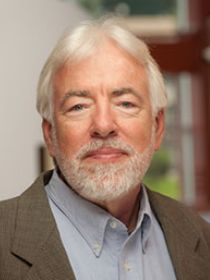
James K. Boyce
Connect with James
About James
Boyce’s areas of expertise include environmental policy, U.S. climate policy, and environmental justice. His scholarship also focuses on the economics of developing countries, including capital flight and the political economy of war-to-peace transitions. Boyce has served as a member of the Economic and Allocation Advisory Committee for the California Global Warming Solutions Act, California Environmental Protection Agency and California Air Resources Board, as well as the Economists Advisory Council of the Financial Transparency Coalition. He has written for Harper’s, Scientific American, Politico, The New York Times, The Los Angeles Times, and numerous scholarly journals. Boyce received the 2017 Leontief Prize for Advancing the Frontiers of Economic Thought.
Contributions
As the Climate Changes, Adaptation Becomes Imperative
No Jargon Podcast
In the News
Publications
Presents evidence on intersectoral, intrasectoral and spatial variations in co-pollutant intensity of industrial point sources in the United States, and discusses options for integrating co-benefits into climate policy design to advance efficiency and equity.